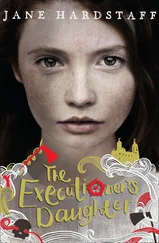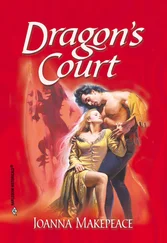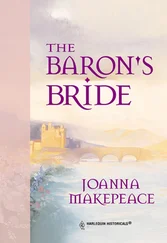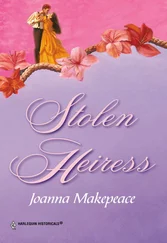“I regard myself as your protector.”
Rhys continued, “Though the wars are over, the times are still troubled. The king’s men are everywhere and soldiers, off duty, can pose problems for vulnerable women. I am sure that I do not have to explain that to you?”
“Are you our protector or our jailer?” she said stonily, and his eyes opened wide and darkened.
Hastily she added, somewhat lamely, “I meant that—I do not understand why you should appoint yourself our guardian.”
He shrugged. “Perhaps because fate cast you both before me as being in need. Is that not a good enough reason, my lady?”
Haughtily she shook her glorious hair, which lay unbound in heavy red-gold waves upon her shoulders. He felt a strong desire to pull her toward him and run his fingers through it. He took himself firmly in hand. She was young, vulnerable and under his protection. He must hold himself in check.
The Traitor’s Daughter
Joanna Makepeace
 www.millsandboon.co.uk
www.millsandboon.co.uk
taught as head of English in a comprehensive school before leaving full-time work to write. She lives in Leicester, with a Jack Russell terrier called Jeffrey, and has written over thirty books under different pseudonyms. She loves the old romantic historical films, which she finds more exciting and relaxing than the newer ones.
Chapter One
Chapter Two
Chapter Three
Chapter Four
Chapter Five
Chapter Six
Chapter Seven
Chapter Eight
Chapter Nine
Chapter Ten
Summer 1503
Philippa Telford stole a hasty glance at her mother as they stood together with their squire, Peter Fairley, on the quay at Milford Haven. Her mother had been very sea sick during their crossing from the port of Damme, in Burgundy, and Philippa had been very concerned for her. The crossing had been rough and the two women had been almost thrown from their bunks several times; Philippa’s mother had not slept for one moment of the time. Philippa had tended her, since they had been unable to bring a maid with them from their lodging in Malines where Philippa’s father, Martyn, Earl of Wroxeter, served the dowager Duchess Margaret of Burgundy—the sister of England’s late King, Richard III. Now, on dry land at last, Philippa was anxious to get her mother quickly to an inn where she could rest and recover from the hardships of the journey.
She was glad that they had followed Peter’s advice and donned their warmest cloaks, since a mist had enveloped the harbour and coastline as they had disembarked and the air was chilly and damp, despite the fact that it was early summer. Philippa sighed as if this inclement weather was a presentiment of misfortunes yet to come.
Peter had already settled their dues with the captain of their carrack, Le Grande Dame, and had assembled their saddle bags of extra clothing and necessities upon the greasy cobblestones of the quay. The bad weather had, apparently, caused the town’s inhabitants to seek drier quarters and the quay looked bleak and almost deserted, which was fortunate, since it was imperative that their arrival should not be unduly noted.
Philippa could see a huddle of uninviting buildings, behind which were the faintest of blue outlines, veiled by the sea mist; she presumed them to be hills. The prevailing sea mist hid from the travellers the sight of other vessels docked in the harbour, though glimpses of tall masts and the creak of timbers came to them eerily from the dank half-darkness of the early evening. This, then, was Philippa’s first sight of the land which had been her mother’s home. Again a shiver ran through her. This place seemed exceptionally inhospitable. She prayed that matters might improve with better weather prospects in the morning when they began their journey to her grandfather’s manor near the town of Ludlow. Had not this land of Wales been described to her by many fellow exiles as a most beautiful one?
Peter led them to an inn situated at the far end of the quay, having discounted a tavern in the centre of the harbour, from which they could hear the sounds of noisy banter, as being unsuitable for his charges, and also considering the necessity of not encountering anyone from near the town of Ludlow who might be staying here in Milford on business in the harbour. It had been many years since the Countess of Wroxeter had been back in her home land, but it was essential that she should not be recognised by anyone who might have known her in childhood, before she had left her father’s manor to journey to Westminster where she had married the Earl and whom she had followed into exile almost twenty years ago. All three of them were acutely aware of the danger which threatened them constantly on arrival; only the dire need to be with Philippa’s grandparents during the serious illness of her grandfather Sir Daniel Gretton had brought them to this dank unwelcoming shore.
Philippa was wryly amused to see the inn’s crudely painted sign of the White Dragon creaking and swaying from the corner of the eaves.
“At least it is not a red dragon,” she murmured in her mother’s ear, recalling that her father had often referred to the court of King Henry VII at Westminster as the lair of the red dragon, contemptuously speaking of the Tudor King’s personal device of the red dragon. To Philippa’s father, the present English King would always be a usurper who had unlawfully taken up arms against his true King, Richard III, and, aided by traitors, had defeated him at the battle of Redmoor near Bosworth, where Wroxeter’s friend and liege lord, King Richard, had been slain. Now Philippa’s father was a proscribed traitor within his own home land, living in exile, unable to accompany his wife and daughter on this journey on threat of a hideous death should he be discovered and arrested.
Cressida made no answer, but Philippa could tell that her mother also was not impressed by the coincidence of the somewhat ominous inn sign.
The tap room appeared as crowded as the other tavern had been, but slightly less noisy. Talk stopped as the eyes of the men gathered round the scratched and stained tables were turned upon the newcomers in open curiosity. Philippa considered that they all looked vaguely alike to her, medium-sized, sturdily built men, dressed in homespun, dark avised; their language, which had come to her in snatches when they had entered the room, was totally incomprehensible to her.
Peter engaged in talk with a slightly taller shambling fellow who announced himself as mine host. He, at least, appeared to speak English, though his accent was very marked and singsong in rhythm.
“I require a private room for my sister, Mistress Weston, and her daughter, my niece. I am escorting them to visit a sick relative who lives near to Ludlow. Can you oblige, master innkeeper?”
The man shook his head emphatically. “I have but one private chamber which is already spoken for. The ladies must make do with the common sleeping room. There are but two women sleeping there tonight. You must sleep down here in the tap room, or the stable if you would prefer that.”
Peter turned to confer, but Cressida said hastily, “Peter, I would much prefer to sleep within the stable with Philippa and you nearby. Can that be arranged?”
The innkeeper scowled and the men seated nearby within earshot whispered to their neighbours. It seemed that only certain members of the company understood English and needed a translation of what had transpired. Curiosity increased. Strangers, most likely, some merchant’s wife and daughter, were usually content enough to share the women’s common sleeping chamber. An atmosphere of resentment seemed to grow within the tap room, making the ale-stinking place chillier than it had been at the outset when they had entered.
Читать дальше
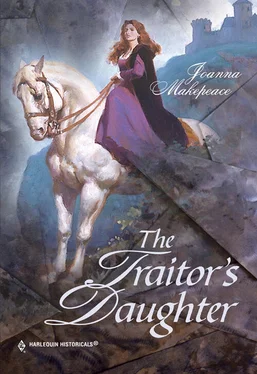
 www.millsandboon.co.uk
www.millsandboon.co.uk



